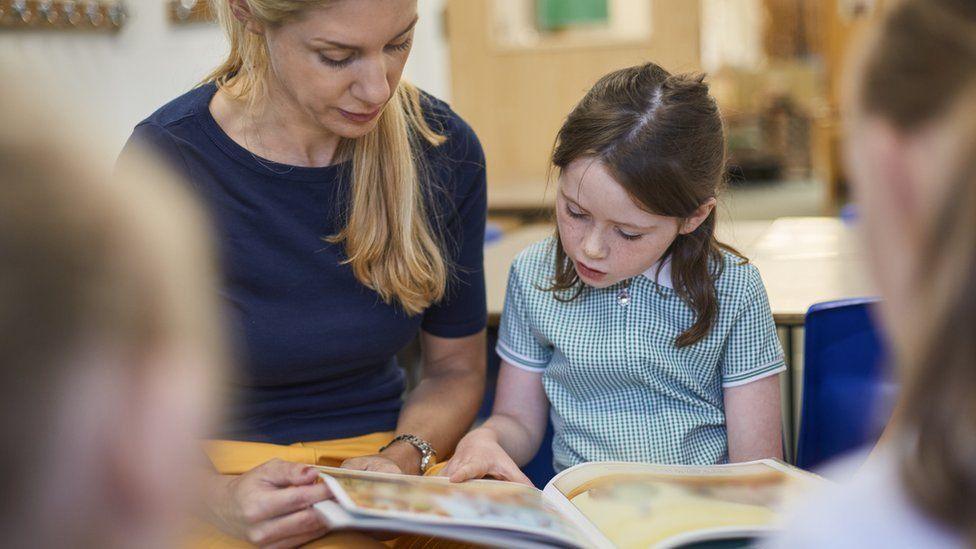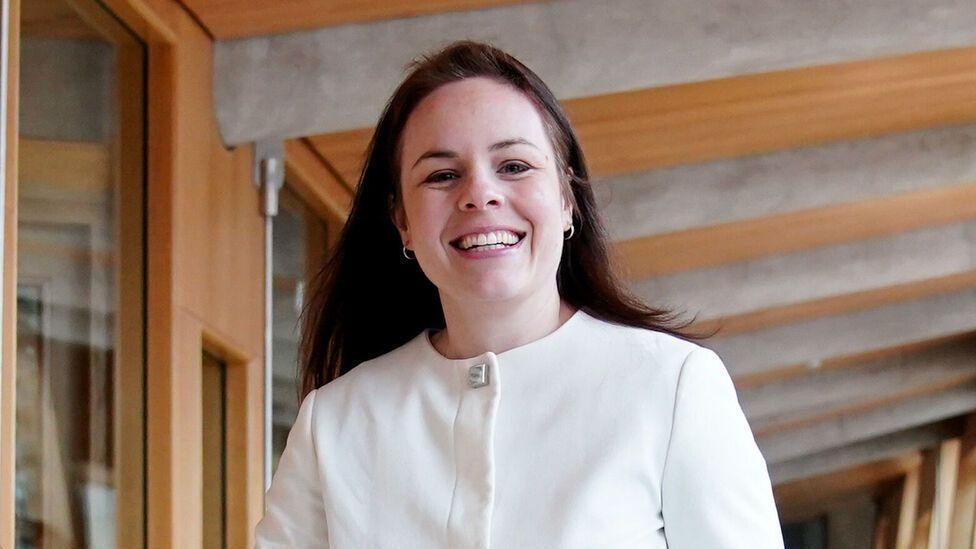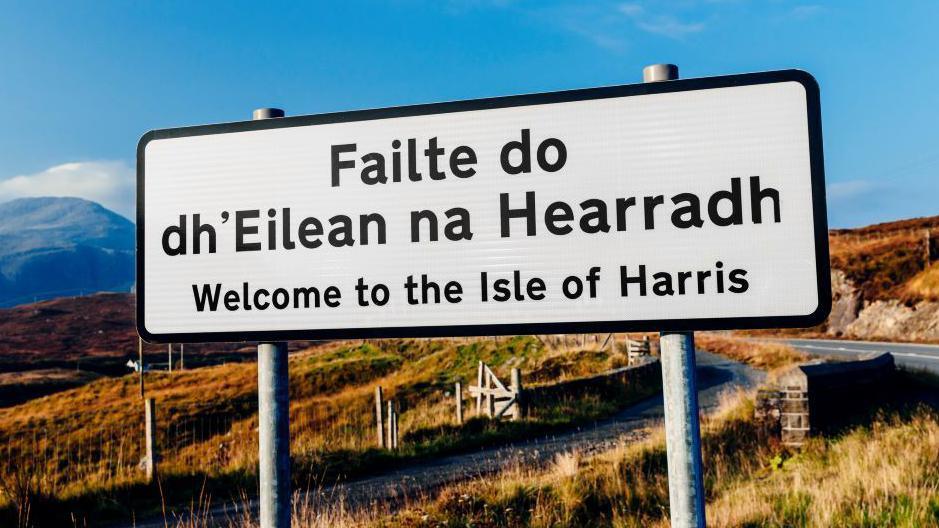Urgent support needed for Gaelic language - report

- Published
Gaelic in Scotland is in a "perilous state" and more needs to be done to "urgently support" language speakers, a Holyrood committee has warned.
The Scottish government has introduced the Scottish Languages Bill which aims to support both the Gaelic and Scots languages.
But members of the Scottish Parliament's education committee have warned that the new legislation's aims may not be achieved unless government support goes further.
In a new report scrutinising the bill, MSPs said that ministers needed to do more for the legislation to "make any meaningful difference rather than simply being symbolic".
The report comes as figures from the 2022 census in Scotland showed just 0.1% of people said Gaelic was their main language.
The survey found that 2.5% of people aged three and over had some skills in Gaelic in 2022, an increase of about 50% on the figures for 2011 and 2001.
The report said: "The committee believes that there are significant issues that need to be addressed to support Gaelic, which is in a perilous state.
"The committee believes that more needs to be done to urgently support speakers, to ensure that the language thrives as a community language."
The report noted that in some areas there was a desire for "more tangible support" than the proposed measures in the bill - with MSPs agreeing with those who suggested that "without that support, the aims of the bill will not be achieved".
Deputy First Minister Kate Forbes, who is minister for Gaelic, said she hoped the new legislation will lead to a "significant increase" in people speaking the language.

Kate Forbes has responsibility for Gaelic within the Scottish government
The bill proposes to give both Gaelic and Scots "official status" and would give councils the power to designate part, or all, of their area as being of "linguistic significance" if there is a high proportion of Gaelic speakers, if Gaelic medium education is provided, or the area is "historically connected with the use of Gaelic".
And a new duty would be placed on Scottish ministers to "promote, facilitate and support" Gaelic education.
The committee said giving Gaelic and Scots official status would be of "limited practical effect" - although the report added such a measure could have "symbolic importance".
On areas of linguistic significance, the report said some of the activities which would take place in these areas were already happening.
The report said it was "not clear to the committee that legislation is, in fact, required to deliver an area of linguistic significance in practice".
With councils "currently dealing with financial challenges and competing priorities" the MSPs also questioned "why a local authority would wish to designate an area of linguistic significance", saying this could lead to further duties for the council but without additional funding.
'Serious concerns'
While MSPs backed the general principles of the legislation, the report said the committee "does not consider that, on its own, the bill will create the necessary conditions" to address the challenges facing the Gaelic and Scots languages.
Education committee convener Sue Webber said: "We have serious concerns about the future of Gaelic.
"While our committee has recommended that the Parliament backs the general principles of the bill, the Scottish government must do more to avoid it being purely symbolic."
Ms Webber added: "We're also concerned by the lack of clarity around what the obligations attached to this Bill mean for public bodies and local authorities regarding Gaelic and Scots."
She added that the committee expected "clarity" on this and the other concerns raised as MSPs continued to scrutinise the legislation.
A Scottish government spokesman said: "The Scottish government is working to create a more secure future for Gaelic through a range of measures across broadcasting, education and the arts.
"The Scottish Languages Bill will make Gaelic an official language of Scotland and introduce standards for teaching Gaelic in schools, supported by almost £30m of Scottish government funding over the course of the current financial year.
"The government notes the committee's recommendation and will continue to make progress with the strong support we provide for Gaelic and Scots."
- Published21 May 2024

- Published3 November 2023

- Published10 July 2024
